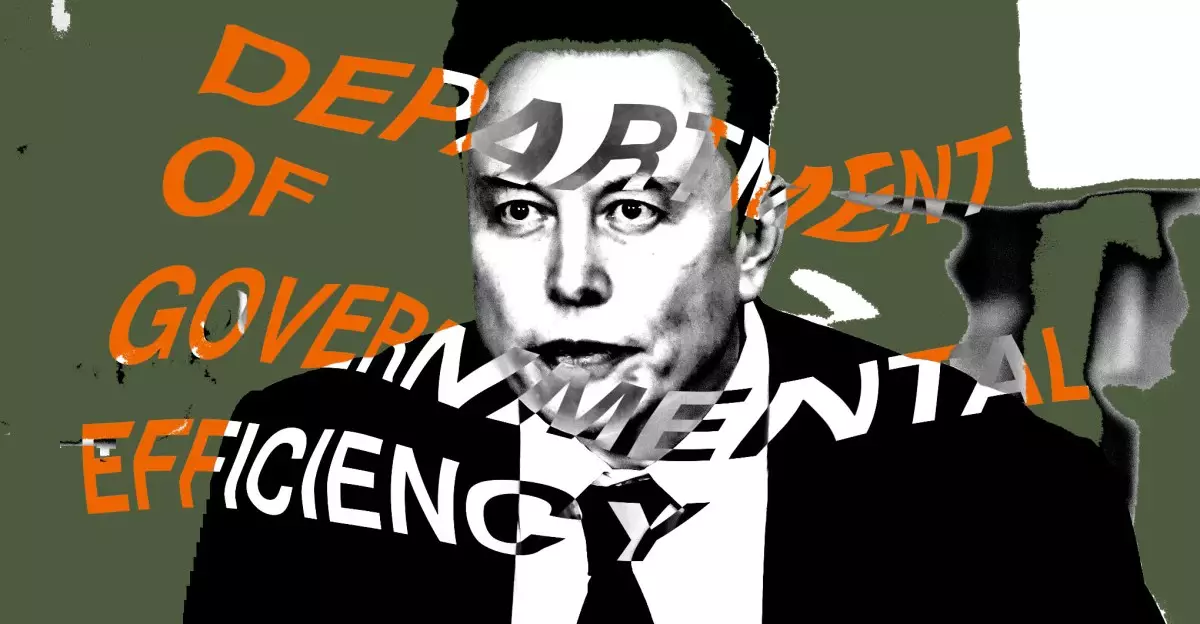In a stunning turn of events, Public Citizen, a prominent advocacy group, has initiated legal proceedings to halt what it describes as the “unlawful and ongoing” access by Elon Musk to sensitive federal payment systems. This lawsuit is lodged in a federal court in Washington, D.C., and brings to light significant concerns regarding Musk’s association with the so-called “Department of Government Efficiency” (DOGE). The crux of the lawsuit revolves around allegations that Musk’s interface with federal systems compromises the privacy and security of American citizens’ financial information.
Public Citizen’s complaint emphasizes elements of shock and alarm, insisting that the access Musk has to personal and financial data—including millions of Social Security numbers—constitutes a direct violation of the Privacy Act of 1974 as well as Internal Revenue Code regulations. The group argues that by allowing the access of Musk and his associates, the Treasury Department, now spearheaded by Scott Bessent, is not just overstepping its bounds but also putting sensitive data at risk. The advocacy group’s assertions raise critical questions about the boundaries of corporate influence over governmental operations, illustrating the potential hazards of intertwining public sectors with private interests.
Legal and Ethical Implications
The lawsuit has uncovered significant implications not only for Musk but also for the integrity of federal systems as a whole. Lawmakers, including Senators Ron Wyden and Elizabeth Warren, have expressed grave concerns regarding the safety of these payment systems, which are critical for running the nation’s infrastructure. The senators’ inquiries into Bessent’s decisions emphasize the importance of preventing any form of political manipulation of essential services. They argue that any access granted to individuals or groups driven by political motives can lead to detrimental consequences for the country’s economic stability.
The matter transcends simple procedural anomalies; it raises discussions about the ethical responsibilities of government officials. Questions about data security protocols, risk assessments, and the potential for misuse of sensitive information are at the forefront. The scrutiny from Wyden and Warren epitomizes the urgency with which Congress is approaching the situation, aiming to ensure that access to these systems is neither abused nor violated through lack of oversight.
Potential Repercussions for the Administration
Potential fallout for the Trump administration is also becoming apparent. Legal experts like Bradley Moss suggest that if DOGE’s maneuvers are perceived as detrimental, it could open pathways for multiple lawsuits from aggrieved parties. Federal employees could initiate legal action in response to funding cuts or workforce downsizing triggered by DOGE’s alterations in operations. This situation could ignite a significant debate over the separation of powers, where Congress might challenge DOGE’s strategies regarding the appropriation of funds, accruing charges of overreach against the executive branch.
Moss encapsulates the precarious stance of the administration under Trump, alluding to a policy of trial and error—one where actions are taken without clear pathways for redress or prevention of adverse outcomes. The phrase “just do it and be legends” serves as a testament to the bold, and arguably reckless, experimental governance approach showcased by the current administration. This aim to stretch policy limits may rapidly transition into a legal quagmire if checks and balances fail to assert themselves.
The wider implications of Public Citizen’s lawsuit against Musk’s access to federal payment systems highlight both the vulnerability of governmental processes and the need for reinstated accountability measures. In an age where beloved figures often rise above institutional protocols, this controversy sheds light on the ramifications of celebrity capitalism converging with government functions. The legal battles ahead could redefine the intersection between private enterprise and public service, establishing precedents that dictate the nature of data security and privacy in governmental dealings.
Ultimately, the ongoing litigation asks not only for a halt to Musk’s access but also sparks a broader discourse on the ethical responsibilities of both individuals in power and the governance structures that enable them. Only through rigorous legal scrutiny and vigilant oversight can we safeguard the essential tenets of democracy and protect citizens’ rights in face of unyielding corporate ambition.

